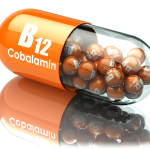Multiple sclerosis (MS) crisis events, better known as relapses, attacks, flare-ups, or exacerbations, are a hallmark feature of MS. They are defined as new or worsening neurological symptoms that last for 24 hours or more in the absence of a fever or infection.1
This article will provide insight into recognizing and treating MS crisis events/relapses. Guidance on preventing these sometimes devastating attacks will also be reviewed.
What Is a Crisis Event With MS?
An MS relapse occurs when the immune system malfunctions and attacks the fatty myelin surrounding nerve fibers in the central nervous system (CNS). The CNS consists of the brain, spinal cord, and optic nerves of the eyes.
Since myelin ensures fast and effective communication among nerve cells, nerve signaling is interrupted between the CNS and the rest of the body when the immune system attacks it.
From this interruption, various symptoms may develop, depending on the location of the inflammation in the CNS.
While not an exhaustive list, common symptoms of an MS relapse include:2
- Numbness and tingling (paresthesias)
- Impaired balance and coordination
- Blurry or double vision
- Fatigue
- Bladder problems
- Muscle weakness
It’s important to understand that MS relapses vary in severity, some being mildly bothersome and others completely debilitating.
Relapses also vary in duration. While most symptom flare-ups tend to worsen over a few days, then level off, they can persist for days, weeks, or even months.
Relapse to Remission
Over time, symptoms of an MS relapse eventually stabilize, either wholly or partially reversing. Remission is the term used to describe the period of symptom stability between relapses.
Video: “Rehabilitation of the patients with Multiple Sclerosis”
MULTIPLE SCLEROSIS. EXERCISES FOR STRETCHING AND IMPROVING BODY FLEXIBILITY AND JOINT MOBILITY, REDUCING TONE
For additional information about Rehabilitation of the patients with Multiple Sclerosis you can watch a video demonstrating exercises and rehabilitation recommendations.
MS Attack Triggers
Research suggests the following scenarios or factors may make a person more vulnerable to developing an MS attack:3
- Low vitamin D levels
- The postpartum period, when estrogen levels decline steeply
- Viral or bacterial infections
- Being older than 50 years of age, perhaps because of increased inflammation in the body with aging
Stress has also traditionally been cited as a possible trigger for MS attacks, especially long-term stressors (lasting more than 48 hours) and significant adverse events like physical assault or partner infidelity.4
Interestingly, sex also affects relapse risk, probably due to sex hormone differences, like estrogen. Females are more likely to experience visual and sensory symptoms during a relapse, whereas males are more likely to experience balance problems and difficulty speaking.5
MULTIPLE SCLEROSIS. EXERCISES TO IMPROVE COORDINATION, BALANCE AND GAIT
How to Recognize a Flare-Up
You may be experiencing an MS flare-up if you meet one of the following criteria for at least 24 hours:
- The appearance of one or more new neurological symptoms
- Worsening of one or more of your old MS symptoms
The difficulty is that, in some cases, what people think is an MS flare-up or relapse is really a pseudo-relapse.
Pseudo-relapses or “false” crisis events are harmless and caused by outside factors, like infection, physical or emotional stress, or heat. Once the external factors are removed, symptoms go away.
Paroxysmal symptoms, such as dystonia (involuntary muscle contractions) or Lhermitte’s sign (a shock-like sensation that runs down your spine), can also be confused with an MS flare-up. Paroxysmal symptoms appear out of the blue, last for seconds to minutes, and may continue for days to months after starting.6
Since distinguishing a flare-up from a pseudo-relapse or paroxysmal symptom can be tricky, your neurologist (doctor specializing in nervous system conditions) may order a magnetic resonance imaging (MRI) scan of your brain or spinal cord.
The presence of one or more enhancing lesions (areas of inflammation) on an MRI confirms the diagnosis of an MS flare-up.
MULTIPLE SCLEROSIS. STRETCHING AND WORKING WITH A MASSAGE ROLLER. ADVANCED STAGE OF REHABILITATION
What to Do During an MS Crisis Event
Reach out to your neurologist or other MS care team member if you are experiencing an MS relapse.
While mild MS relapses do not usually require medication, more moderate to severe ones do. A moderate to severe MS relapse is generally distressing and can interfere with your ability to function at home or work.7
Treatment
A three-to-five-day course of high-dose steroids, either Solu-Medrol (methylprednisolone) or prednisone, is prescribed for moderate or severe relapses. Steroids work by calming down the inflammation in your central nervous system and can shorten the time you are experiencing MS symptoms.
Drawback of Steroids
Steroids offer no long-term benefits in MS. While very effective drugs, steroids are also associated with severe possible side effects, so taking them requires careful consideration with your healthcare provider.
Adrenocorticotropic hormone gel injections may be administered for people who cannot tolerate steroids.
Likewise, plasmapheresis (a blood-filtering procedure) can be performed in the hospital for people with severe relapses who do not get better with steroids.8
Medication or nondrug therapies are often recommended to treat bothersome or disabling symptoms. For example, a muscle relaxant may be prescribed if you are experiencing tight muscle pain (spasticity). Specific rehabilitation (e.g., physical therapy) and complementary therapies (e.g., massage) can also be soothing.
Self-Care
It can be emotionally and physically draining whether you are starting, in the middle of, or recovering from an MS relapse. Caring for and making yourself a priority during this challenging time can help you get through the event as healthily as possible.
Some self-care strategies you might consider are:
- Maintain a regular sleep schedule (you may need to schedule a daily nap during this trying time).
- Ask for help from others with household or work tasks.
- Seek out emotional comfort from loved ones or an MS support group.
- Prioritize your energy, which might mean saying no to specific engagements.
- Find ways to relax (e.g., journaling, meditation, or self-hypnosis).
When to See a Healthcare Provider
Contact your healthcare provider if you are experiencing new or worsening preexisting MS symptoms for a full day.
Even if you suspect a pseudo-relapse—perhaps you have a fever from an illness or are particularly stressed—it’s reasonable to double-check and review your symptoms with your neurologist. They may ask you questions over the phone or ask you to come into the office for an appointment.9
Seek Emergency Medical Attention
If your symptoms represent a significant change from normal, like vision loss, trouble walking, or disabling pain, go immediately to your nearest emergency room.
MULTIPLE SCLEROSIS. EXERCISES TO STRENGTHEN THE MUSCULOSKELETAL AND MUSCULAR SYSTEM, ENDURANCE
MS Flare-Up Prevention Tips
There is no surefire way to prevent an MS flare-up.
However, you can maximize your chances by doing the following:
- Take your disease-modifying therapy (DMT) as prescribed. These are “big-picture” drugs intended to decrease MS relapses.10
- Adopt healthy lifestyle behaviors like staying active, eating a well-balanced diet, and avoiding smoking.
- Prevent infection by washing your hands frequently and maintaining updated vaccinations (e.g., COVID-19 vaccine).
- Check with your healthcare provider to ensure your vitamin D level is within range (this requires a blood test).
- Manage your stress well—consider seeing a professional for specific stressors (e.g., a financial planner for retirement planning or a therapist for your mental health).
Summary
Multiple sclerosis (MS) is a chronic, neurological disease marked by crisis events, better known as relapses, attacks, flare-ups, or exacerbations. Relapses occur when a person with MS experiences new or worsening neurological symptoms that last at least 24 hours and have no other known cause.
While it’s usually unclear what triggers most MS relapses, stress, infection, or hormone changes may play a role. If you suspect you are having an MS relapse, contact your neurologist right away for a proper evaluation and diagnosis. Steroids may be prescribed to help counter the inflammation and shorter the duration of your relapse
MS relapses are erratic, unpleasant experiences. As you navigate the ebbs and flows of living with MS, try to focus on what you can control—seeing your neurologist regularly, eating nutritiously, and staying as active as possible. Also, remember to practice self-compassion and take time each day to enjoy life and your relationships with loved ones.
Dr. Doherty is a board-certified internist and writer living with multiple sclerosis. She is based in Chicago.

Check out the demo version of our sets of exercises for Multiple Sclerosis on YouTube
You can find more information about Multiple Sclerosis in our Blog.
Our website presents the following sets of exercises for the rehabilitation of the patients with Multiple Sclerosis:
-
MULTIPLE SCLEROSIS. EXERCISES FOR STRETCHING AND IMPROVING BODY FLEXIBILITY AND JOINT MOBILITY, REDUCING TONE
-
MULTIPLE SCLEROSIS. EXERCISES TO STRENGTHEN THE MUSCULOSKELETAL AND MUSCULAR SYSTEM, ENDURANCE
-
MULTIPLE SCLEROSIS. EXERCISES TO IMPROVE COORDINATION, BALANCE AND GAIT
-
MULTIPLE SCLEROSIS. STRETCHING AND WORKING WITH A MASSAGE ROLLER. ADVANCED STAGE OF REHABILITATION
CHECK OUT THE DEMO VERSION OF OUR EXERCISES FOR THE PATIENS WITH APHASIA and DYSARTHRIS ON YOUTUBE.
Our website presents the following sets of exercises for rehabilitation of the patients with Aphasia, Dysarthria:
















